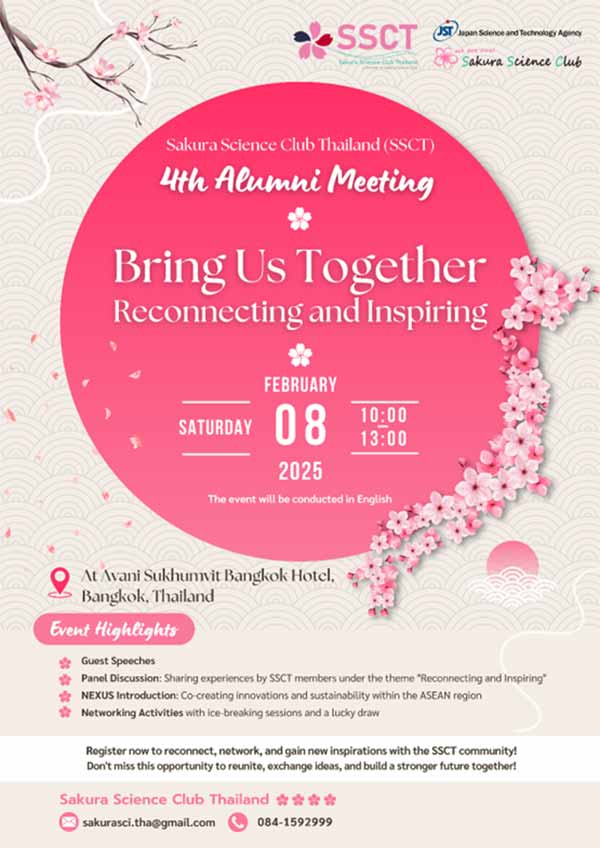Events
Sakura Science Club Thailand (SSCT) 4th Alumni Meeting
“Bring Us Together: Reconnecting and Inspiring”
8th February 2025
Avani Sukhumvit Bangkok Hotel, Bangkok, Thailand
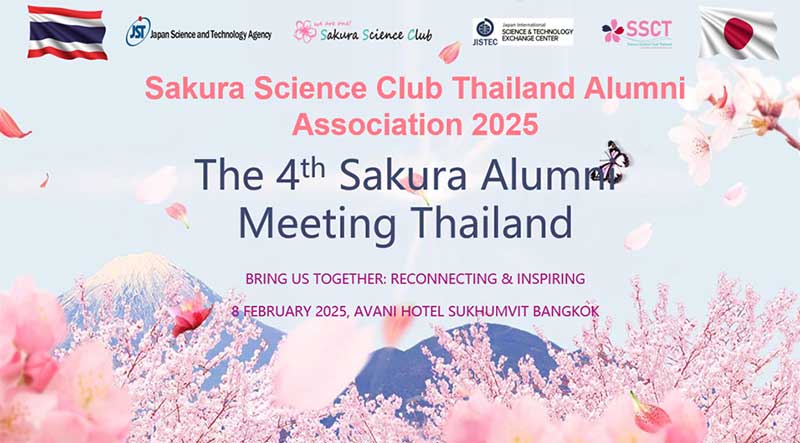
Co-hosted by Sakura Science Club Thailand (SSCT)
and Japan Science and Technology Agency (JST)
THE 4TH SAKURA SCIENCE CLUB THAILAND (SSCT) ALUMNI MEETING
BRING US TOGETHER: RECONNECTING AND INSPIRING
The Sakura Science Club Thailand (SSCT) is organized the 4th SSCT Alumni Meeting under the theme “Bring Us Together: Reconnecting and Inspiring”, in collaboration with the Japan Science and Technology Agency (JST). The meeting aims to foster networking, knowledge exchange, and collaboration among alumni while promoting the development and dissemination of scientific and technological knowledge between Thailand and Japan.
This meeting is took place on Saturday, February 8, 2025, at Avani Sukhumvit Bangkok Hotel. The main topics included alumni experience sharing, academic and professional inspiration, as well as information on study opportunities and international research collaboration. Additionally, the event featured a panel discussion where alumni from various professional backgrounds will share insights into their careers, along with networking activities to strengthen connections among members.
This meeting served as a significant opportunity for SSCT members to exchange knowledge and experiences, establish academic and professional collaborations, and contribute to the development of a strong scientific and technological network that plays a crucial role in advancing knowledge and innovation for society.
This report presents a summary of the activities and content discussed in this meeting, structured according to the scheduled agenda, with details as follows.
OPENING SESSION
The opening ceremony session, greetings were officially delivered by two key representatives, firstly, Dr. Orawan Sriboonruang, the STEM Education Specialist & Knowledge Management Manager of the Southeast Asian Ministers of Education Organization Regional Centre for STEM Education (SEAMEO STEM-ED), and secondly, Mr. OTSUKI Hajime, the Director of the Sakura Science Program Headquarters, Japan Science and Technology Agency (JST). Their speeches were as follows.
Welcome Remarks
Dr. Orawan Sriboonruang, the President and the Chief Coordinator of Sakura Science Club Thailand (SSCT), warmly welcomed attendees to the 4th SSCT Alumni Meeting under the theme "Bring Us Together: Reconnecting and Inspiring" on February 8, 2025, at Avani Sukhumvit Bangkok Hotel. She emphasized SSCT’s role as a dynamic network fostering science, technology, and innovation while strengthening collaboration between Thailand and Japan.
She expressed gratitude to the Japan Science and Technology Agency (JST) for their continuous support of the Sakura Science Program, acknowledging key representatives. Additionally, she thanked the Ministry of Education (MOE) of Thailand for supporting international educational collaboration, recognizing distinguished guests:
Dr. Orawan also introduced the SSCT Organizing Committee, whose dedication has been crucial in making this event possible. The theme "Bring Us Together: Reconnecting and Inspiring" highlights the importance of reconnecting alumni, sharing experiences, and fostering new collaborations. She encouraged participants to engage actively in discussions and networking opportunities, making this event a meaningful and inspiring experience for all.
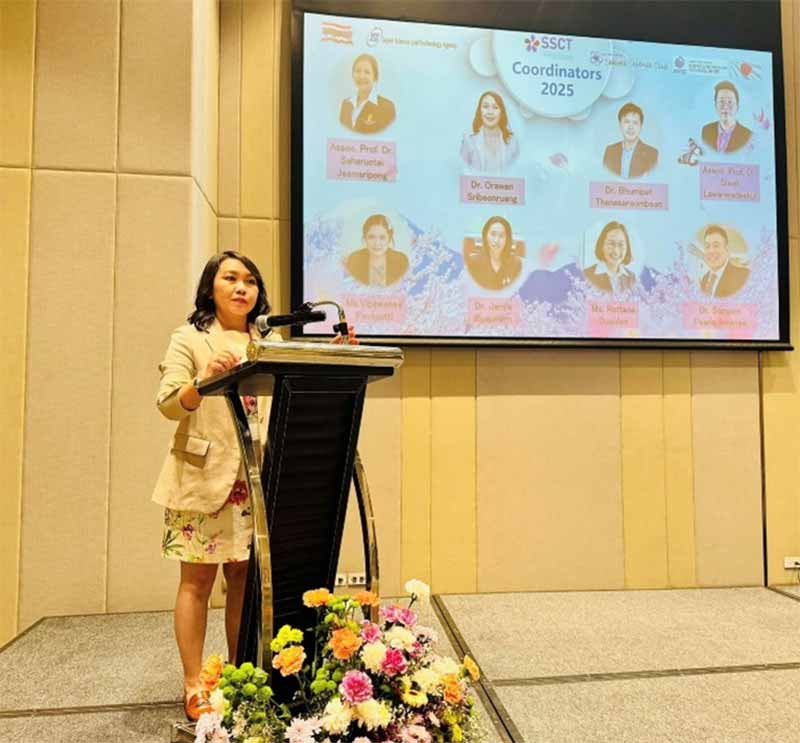
STEM Education Specialist & Knowledge Management Manager of SEAMEO STEM-ED The President of Sakura Science Club Thailand and Chief of Thai Coordinator
Opening Remarks
Mr. OTSUKI Hajime, Director of the Sakura Science Program Headquarters at the Japan Science and Technology Agency (JST), welcomed the participants and expressed his gratitude to everyone for taking the time to attend the event. He emphasized the significance of the Sakura Science Program in promoting person-to-person exchanges, highlighting that more than 4,300 Thai participants have traveled to Japan through this initiative.
He also commended and thanked the coordinators for organizing this meeting and expressed his confidence that SSCT will continue to strengthen relationships between Thailand, Japan, and the international community. JST remains committed to supporting this program and encourages everyone to maintain their connections with Japan.
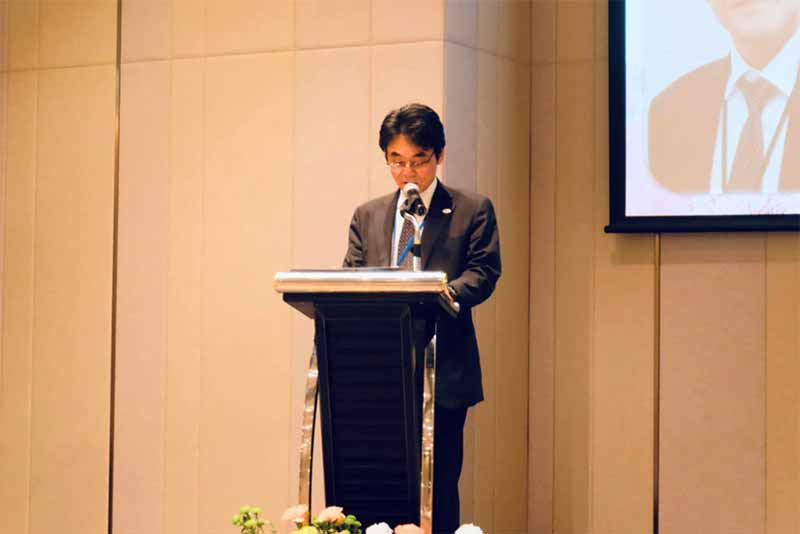
Director of Sakura Science Program Headquarters, Japan Science and Technology Agency (JST)
PHOTO SESSION
The master of ceremony, Dr. Bhumipat Thanasansomboon expressed gratitude for the support of the program and invited participants to join a group photo as a keepsake. Honored guests, the Japanese team, the Thai coordination team, and the panel of speakers were invited on stage for the group photo. After that, a group photo was taken with the participants.
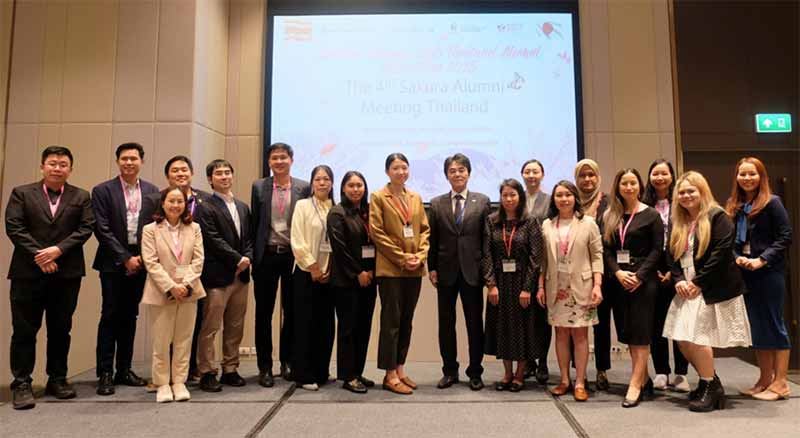
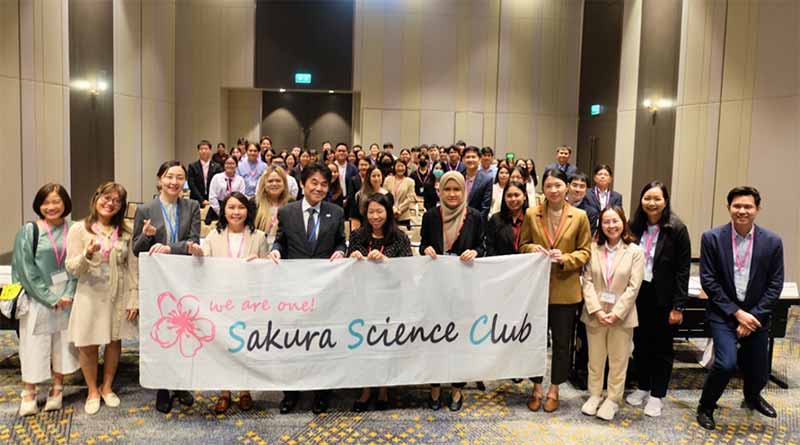
SHARING SESSION
The Sharing Session provided an opportunity for SSCT members to share their experiences and perspectives. The session was moderated by Assoc. Prof. Dr. Saharuetai Jeamsripong, a veterinary epidemiologist at the Department of Veterinary Public Health, Faculty of Veterinary Science, Chulalongkorn University, and featured three distinguished Panelist:
- Miss Thanakporn Nontachart, International Relations Officer at the National Institute of Metrology, Bangkok
- Dr. Pattanan Dansai, CEO of Dansai Group Company Limited at Southern Thailand Science Park, Songkhla
- Dr. Kitti Wirotrattanaphisan, Lecturer at Rajamangala University of Technology Lanna (RMUTL), Tak
The Panelist shared their experiences in international collaboration, innovation, and industry. They introduced themselves and reflected on their participation in the Sakura Science Exchange Program, having traveled to Japan through the program between 2015 and 2017. They also discussed the benefits of the program, such as building professional networks, exchanging knowledge, and fostering academic and career connections with Japan.
Key Topics Discussed in the Session
The session covered seven key topics, as follows:
-
1) Cultural Experiences and Learning from Japan
- Dr. Pattanan Dansai was particularly impressed by Japan’s business culture and continuous development, highlighting leading companies such as Toyota and Sony, as well as the strong teamwork culture among Japanese professionals.
- Miss Thanakporn Nontachart emphasized scientific collaboration between metrology institutes in ASEAN and Japan, which has led to the advancement of regional economic development and measurement standards.
- Dr. Kitti Wirotrattanaphisan shared his experience of visiting Japan’s National Institute of Metrology (NIMJ) and exchanging knowledge on production technology.
-
2) The Impact of the Sakura Science Program on Academic and Career Development
- Dr. Pattanan Dansai applied concepts from Japan to develop a digital platform for environmental monitoring, including PM2.5 tracking and carbon reduction strategies. She highlighted the importance of user communication in addition to technology itself.
- Miss Thanakporn Nontachart discussed the importance of international cooperation, noting that Thailand and Japan sign an MOU every five years to enhance metrology collaboration.
-
Dr. Kitti Wirotrattanaphisan emphasized technology transfer and instrument calibration, which help improve standards in Thai laboratories.
-
3) Experiences and Connections with Japan
The panelists highlighted several key aspects of their connections with Japan, including:-
1. Cultural and Learning Experiences in Japan
- All speakers were impressed by Japan’s consistent technological and business advancements.
- Japan emphasizes collaboration and problem-solving, which significantly influences academic and industrial development.
-
2. Academic and Career Impacts of the Sakura Science program
- The program fosters academic and technological collaboration between countries.
- Participants gain insights into technological innovation and business applications.
-
3. Long-Term Relationships with Fellow Participants
- Some panelists remain in contact with their colleagues through email and social media.
- Even for those who have lost touch, the memories and experiences remain valuable.
-
4. Challenges and Adaptation in Japan
- Language barriers were a common challenge due to different accents and dialects.
- Adapting to Japanese food and culture was necessary, but overall, Japan was seen as a welcoming and hospitable country.
- Memorable experiences included receiving help from locals and retrieving lost belongings.
-
1. Cultural and Learning Experiences in Japan
Overall, the Sakura Science Program has provided long-term benefits for participants in terms of academics, career growth, and personal relationships, which continue to influence their lives today.
-
4) Personal Growth and Development Through the Sakura Science Exchange Program
- Dr. Kitti Wirotrattanaphisan highlighted the exchange of knowledge and technology between laboratories, which has led to research collaboration and innovation.
- Dr. Pattanan Dansai shared how the program shifted her focus from Food Science to future global trends for 2030. She now explores smart energy and climate change solutions, planning to develop new platforms for Thailand and the Asia-Pacific region.
- Miss Thanakporn Nontachart stated that participating in the Sakura Science Exchange Program helped her embrace cross-cultural collaboration and build confidence in networking, despite language and cultural differences.
-
5) Advice for Those Interested in Joining the Sakura Science Exchange Program
- Dr. Kitti Wirotrattanaphisan recommended preparing in both Japanese and English, as language proficiency enhances communication and learning.
- Dr. Pattanan Dansai advised setting clear goals before joining the program, as participation without a defined purpose may not be meaningful. She also emphasized being prepared for unexpected challenges.
- Miss Thanakporn Nontachart encouraged participants to embrace new experiences, explore Japanese culture, and build connections with Japanese experts, as these networks could open future opportunities.
In summary, the panelists emphasized goal-setting, open-mindedness, and networking as key factors for maximizing the value of participation in the Sakura Science Exchange Program.
-
6) Long-Term Career Plans and Goals
- Dr. Pattanan Dansai aims to enhance skills, professional relationships, and research in clean technology and health-oriented food products. She emphasized the importance of networking and strategic partnerships to achieve long-term goals.
- Dr. Kitti Wirotrattanaphisan is focused on university research, student mentorship, and international research collaboration.
- Miss Thanakporn Nontachart is dedicated to her work at the National Institute of Metrology and long-term collaboration with Japan in developing measurement techniques and scientific research methodologies.
The discussion highlighted how each panelist envisions their career growth, research focus, and the importance of collaboration in achieving long-term goals, particularly in technology, health, and scientific methods.
-
7) Questions from the Audience
- Participants asked how scientific and technological knowledge from their studies could be applied commercially in Thailand, especially in cases where research and technology development do not always lead to commercialization.
- Dr. Pattanan Dansai explained the challenges of bringing laboratory technology to the market, using the example of an “Allergen Test Kit”. She noted that high costs make it difficult for food industry businesses and restaurants to adopt such technology, highlighting the need to consider ROI (Return on Investment) and address user pain points before launching a project.
- Miss Thanakporn Nontachart and Dr. Kitti Wirotrattanaphisan discussed similar challenges in research applications. They emphasized that institutions need to host seminars and conferences to disseminate research findings and engage target users.
Overall, the discussion underscored the importance of market consideration and return on investment (ROI) when developing new technologies. It also explored how Thai researchers and entrepreneurs can bridge the gap between research and commercial applications.
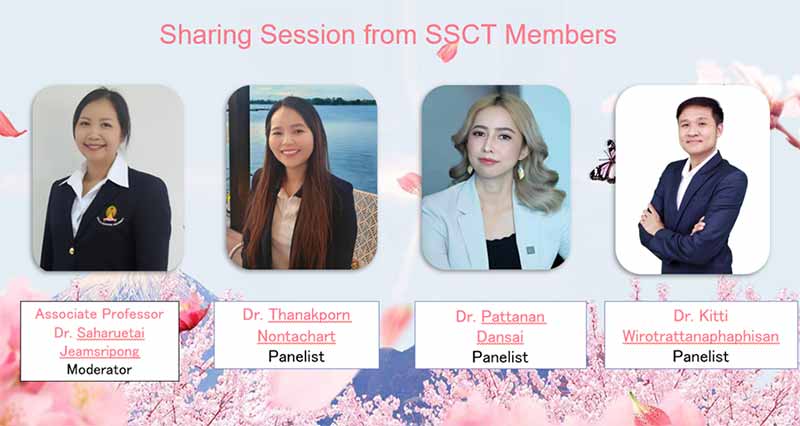
Sharing Session from SSCT Members
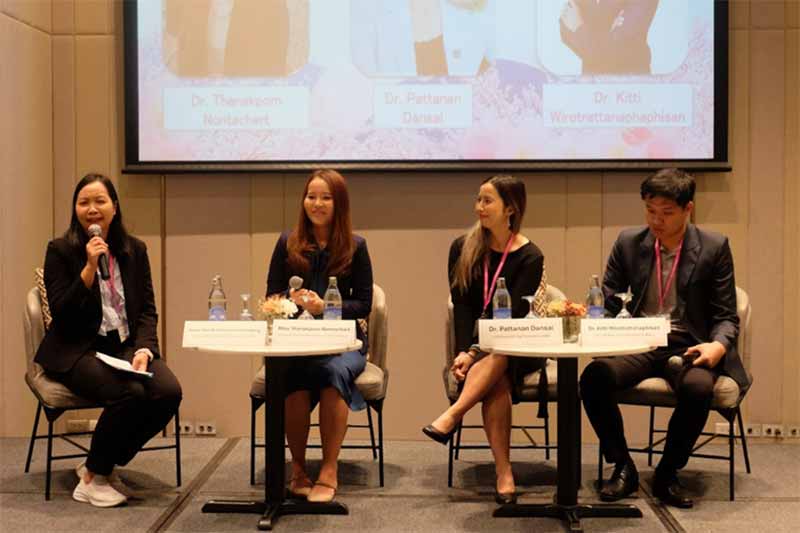
Dr. Pattanan Dansai, and Dr. Kitti Wirotrattanaphisan
INTRODUCTION TO STUDY IN JAPAN
Ms. Nampeung Samadeh, an Educational Advisor from the Japan Student Services Organization (JASSO) Thailand Office, provided valuable information regarding opportunities for studying in Japan. Through her presentation, Ms. Nampeung highlighted various opportunities and resources available for students interested in pursuing education in Japan, which inspired many participants to explore more educational opportunities in Japan.
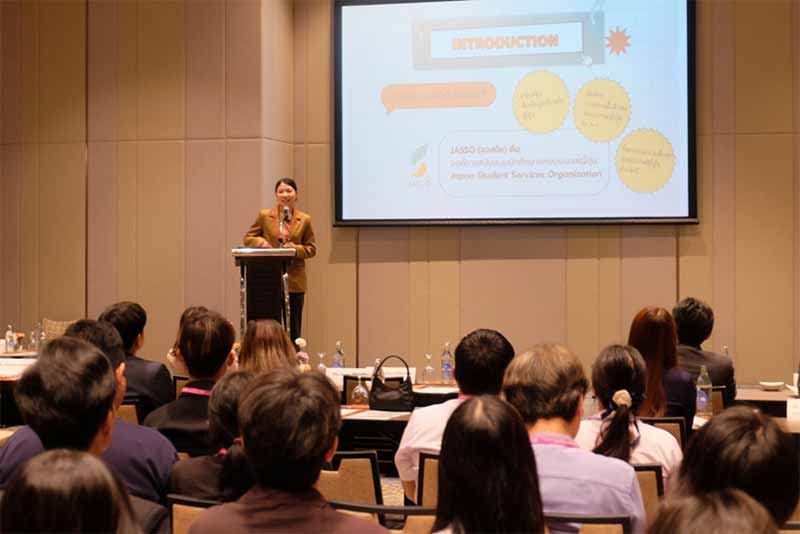
Educational Advisor at Japan Student Services Organization (JASSO), Thailand Office
INTRODUCTION TO NEXUS
Ms. KISHIDA Eriko, Manager of Department of International Affairs, JST has presented five main points about The Networked Exchange, United Strength for Stronger Partnership between Japan and ASEAN (NEXUS). She introduced the NEXUS program which focuses on enhancing cooperation between Japan and ASEAN, especially in the fields of science and technology.
Ms. KISHIDA stressed the importance of linking Japanese and Thai researchers, with NEXUS being a vital tool for strengthening cooperation and creating networks between the two countries. She also invited participants to inquire for further information, emphasizing that JST is eager to facilitate connections between researchers in Thailand and Japan.
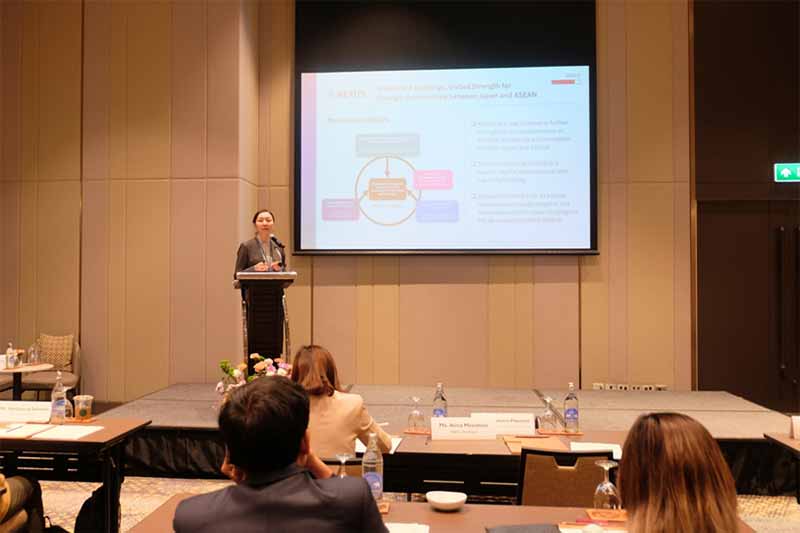
Manager of Department of International Affairs, JST
INTRODUCTION TO YOUNG TALENTS COURSE (Y-TEC)
Mr. TAKAHASHI Naohiro, Deputy Manager of Sakura Science Program Headquarters, JST presented about Young Talents Course (Y-tec). Y-tec is an exchange and capacity-building program for youth in science and technology between Japan and ASEAN countries. It expands upon the Sakura Science program by allowing exchange opportunities for students from Japan to ASEAN countries and vice versa. Unlike Sakura Science, which limits the number of visits to Japan , Y-TEC offers more flexibility in exchanges.
The application process and participation steps can be accessed through Y-tec’s official webpage for further information. The application process requires collaboration between faculty members from Japan and ASEAN countries to plan the exchange program.
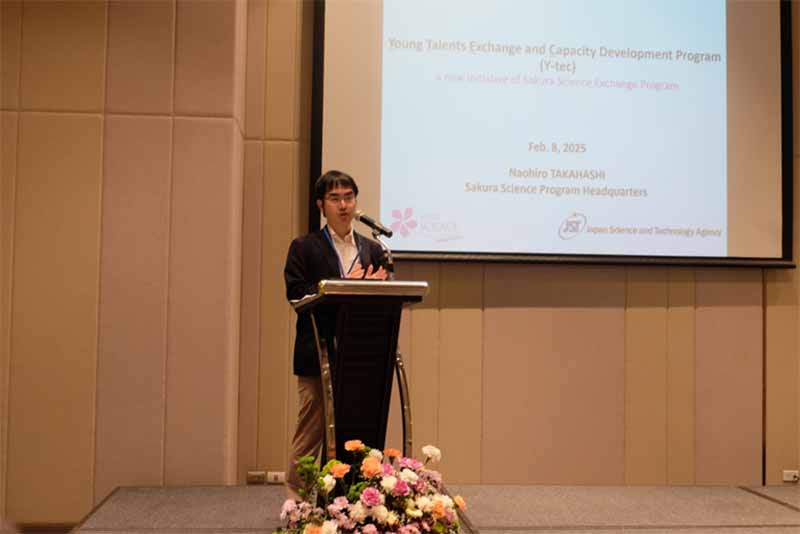
Deputy Manager of Sakura Science Program Headquarters, JST
CLOSING SESSION
Dr. Orawan Sriboonruang, President and Chief Coordinator of Sakura Science Club Thailand (SSCT), expressed her heartfelt gratitude as the 4th SSCT Alumni Meeting came to a close. She thanked the Japan Science and Technology Agency (JST)and Japan International Science and Technology Exchange Center (JISTEC) for their ongoing support in fostering international collaboration and acknowledged key representatives for their dedication.
She also extended appreciation to the event’s speakers, panelists, and moderators for their insightful contributions, as well as the SSCT Organizing Committee, whose efforts were instrumental in making the event a success.
Reflecting on the theme "Bring Us Together: Reconnecting and Inspiring," Dr. Orawan emphasized the importance of continued engagement within the SSCT community. She encouraged alumni to stay connected, collaborate, and build on the momentum of this gathering to drive future scientific and educational initiatives. She concluded by thanking all participants and expressing her hope to see them again at future SSCT events in 2026.
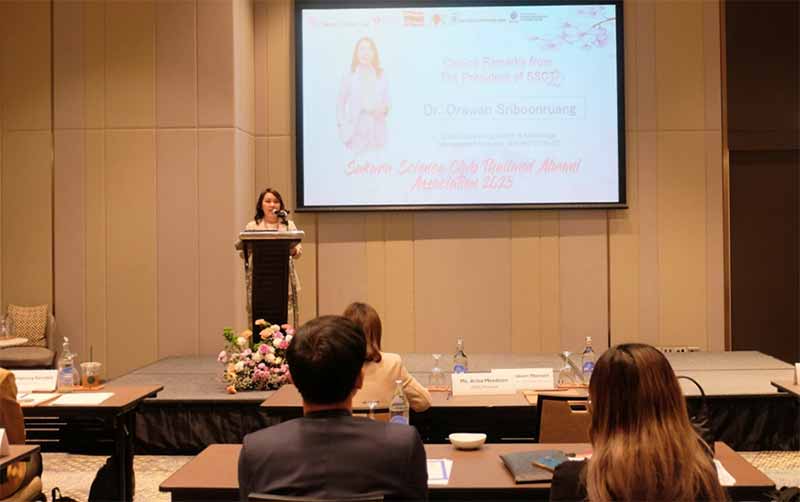
The President of Sakura Science Club Thailand and Chief of Thai Coordinator
NETWORKING SESSION
Asst. Prof. Dr. Siwat Lawanwadeekul and Dr. Sompon Peansukmanee led the networking activities, which aimed to help participants get to know each other better. These activities included an "Ice-breaking" session to facilitate introductions and group discussions on various topics to foster connections. The focus was on encouraging participants to engage in conversations, build relationships, and establish professional connections for future collaborations and activities, while also sharing opinions and experiences with one another.
Additionally, a lucky draw was held during the networking session to add an element of fun, with small prizes awarded to the winners. The activities were designed to create a friendly and enjoyable atmosphere, allowing participants to network in a relaxed setting. The experience gained from these interactions could also contribute to strengthening future collaborations.
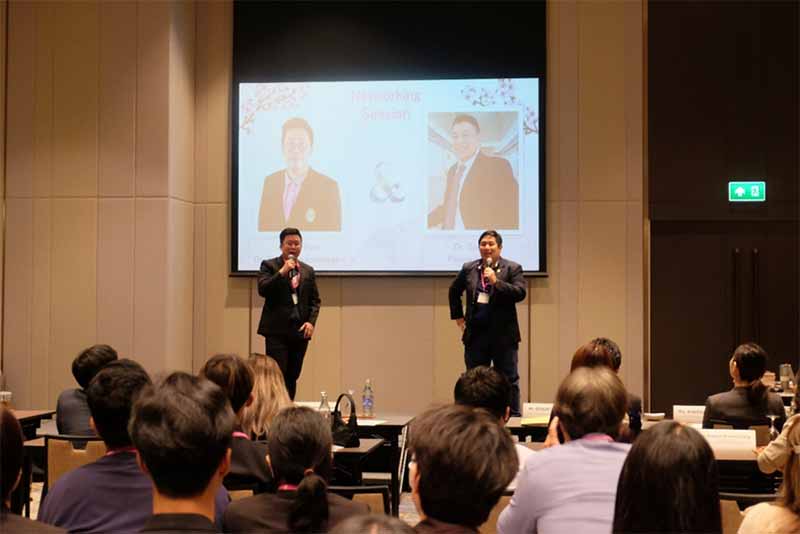
Lecturer at Faculty of Industrial Technology, Lampang Rajabhat University, Thailand
Dr. Sompon Peansukmanee
Lecturer at King Mongkut’s University of Technology Thonburi (KMUTT), Thailand
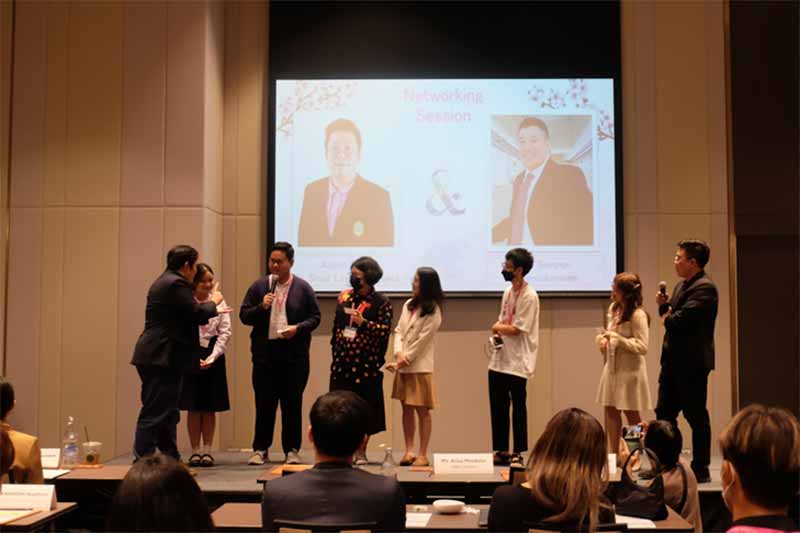
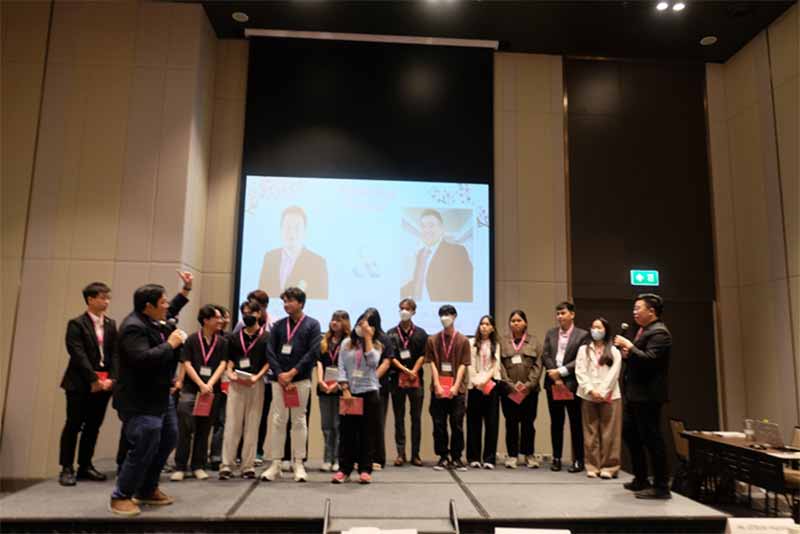
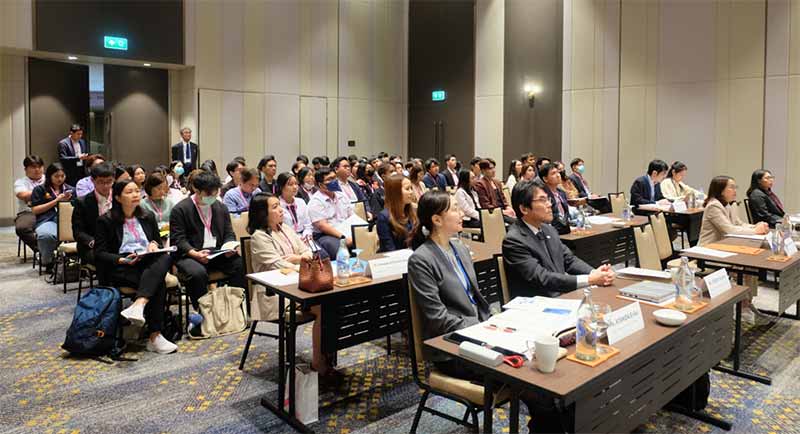
APPENDIXES
List of Sakura Science Club Thailand (SSCT): The 4th Alumni Meeting team
- 1) Dr. Orawan Sriboonruang, STEM Education Specialist & Knowledge Management Manager of SEAMEO STEM-ED, the President of Sakura Science Club Thailand and Chief Coordinator of Sakura Science Club Thailand
- 2) Dr. Somporn Peansukmanee, Deputy chief coordinator, Faculty of Engineering, King Mongkut's University of Technology Thonburi (KMUTT)
- 3) Assoc. Prof. Dr. Saharuetai Jeamsripong, Veterinary epidemiologist at Department of Veterinary Public Health, Faculty of Veterinary Science, Chulalongkorn University
- 4) Dr. Jariya Buajarern, National Institute of Metrology (Thailand)
- 5) Assoc. Prof. Dr. Siwat Lawanwadeekul, Lampang Rajabhat University
- 6) Dr. Bhumipat Thanasansomboon, True Corporation Public Company Limited
- 7) Ms. Rattana Duaidee, Researcher, Institute for Population and Social Research Mahidol University
- 8) Ms.Vipawanee Pavasutti, Research Assistant, Kasetsart University
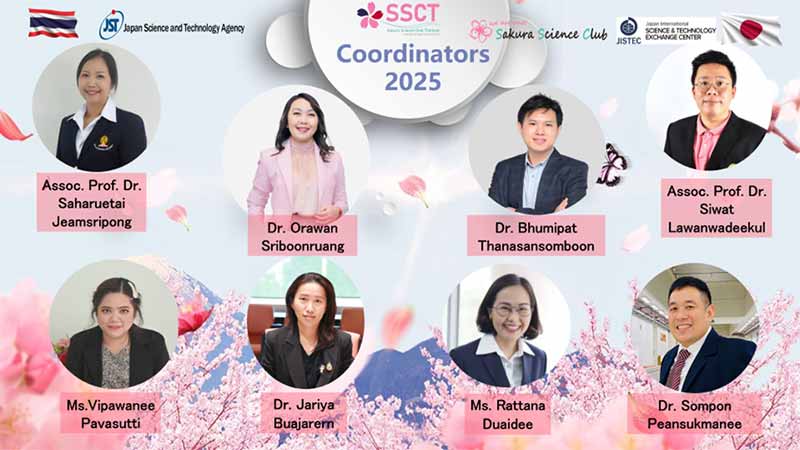
Sakura Science Club Thailand Coordinators 2025 (As of February 2025)
